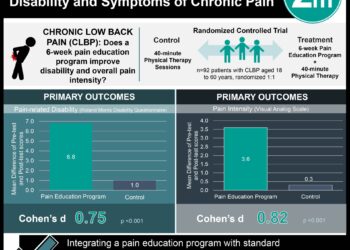Full-day preschool programs linked to improved overall student performance
1. Full-day (7 hour) preschool programs resulted in marked improvement in academic performance at the end of the school year versus part-day (3 hour) programs.
2. About 81% of full day students were at or above the national average in ≥4 metrics of development compared to 59% of part-day students.
Evidence Rating Level: 2 (Good)
Study Rundown: Preschool education in this country usually begins at age 3 or 4. It is often where a child is first exposed fundamentals such as the alphabet, numbers, and naming colors and shapes. A proper preschool education has been shown to have far reaching effects on employment, high school graduation rates, and even crime prevention. Today, there exists both part-day and full-day programs in schools, with part-day making up the majority. The current debate, and this study, is focused on whether or not full-day programs provide any added benefit to children compared to the part-day program.
Students placed in the full-day program demonstrated significantly better performance on most metrics of development at the end of the year than part-day students. Two areas where there was no significant difference were literacy and cognitive development. A major strength of the study is the provision that a school must offer both part-day and full-day programs concurrently to be included. Weaknesses of the study include the lack of random assignment of the children to either a part-day or full-day preschool program and the placement of all 4-year-old children in the full-day program. Nevertheless, this study highlights the potential added benefits of participation in a full-day preschool program.
Click to read the study, published today in JAMA
Click to read an accompanying editorial, published today in JAMA
Relevant Reading: A meta-analysis of the effects of early developmental prevention programs in at-risk populations on non-health outcomes in adolescence
In-Depth [prospective cohort]: This study involved 982 three and four-year olds from 11 schools in Chicago during the 2012-2013 school year. A total of 409 children were enrolled in full-day classes (7 hours) and 573 in part-day classes (2.75 – 3 hours). Full-day students demonstrated significantly better performance in 4 categories: language (39.9 vs 37.3; difference, 2.6; 95%CI 0.6-4.6), math (40.0 vs 36.4; difference, 3.6; 95%CI 0.5-6.7), socioemotional development (58.6 vs 54.5; difference, 4.1; 95%CI 0.5-7.6), and physical health (35.5 vs 33.6; difference, 1.9; 95%CI 0.5-3.2). In terms of literacy and cognitive development, there was no statistically significant difference between the two groups. Further, 80.9% of the full-day students were at or above the national average on ≥4 scales compared to 58.7% of the part-day students (difference, 22.2; 95% CI 5.8-38.5; P = .008).
More from this author: Reducing surgical complications may increase costs, Protected sleep periods improve intern alertness and sleep duration, ADHD medication decreases rates of criminality in ADHD patients, Low dose aspirin shows net clinical benefit in patients with first unprovoked venous thromboembolism, Rare TREM-2 mutation implicated in Alzheimer’s Disease
Image: CC/Muller168
©2014 2 Minute Medicine, Inc. All rights reserved. No works may be reproduced without expressed written consent from 2 Minute Medicine, Inc. No article should be construed as medical advice and is not intended as such by the authors, editors, staff or by 2 Minute Medicine, Inc.







